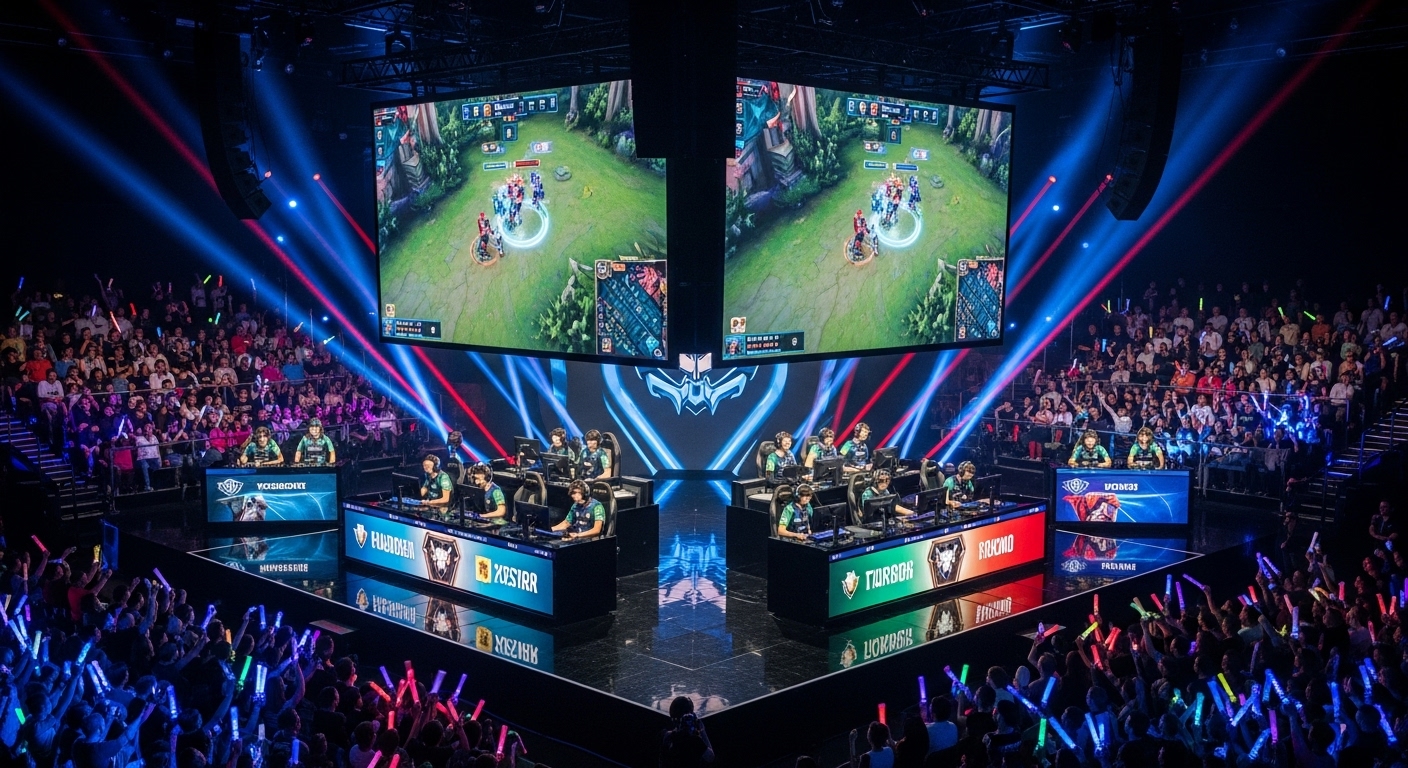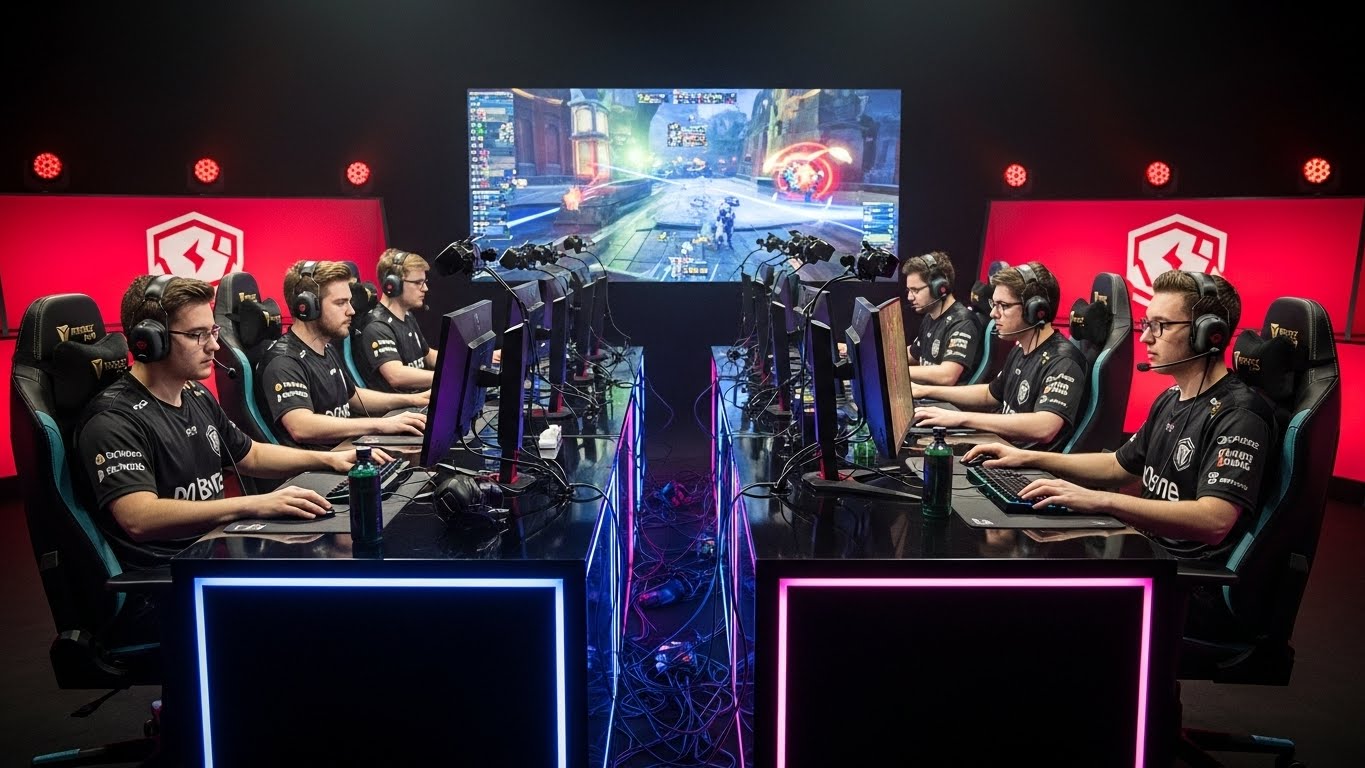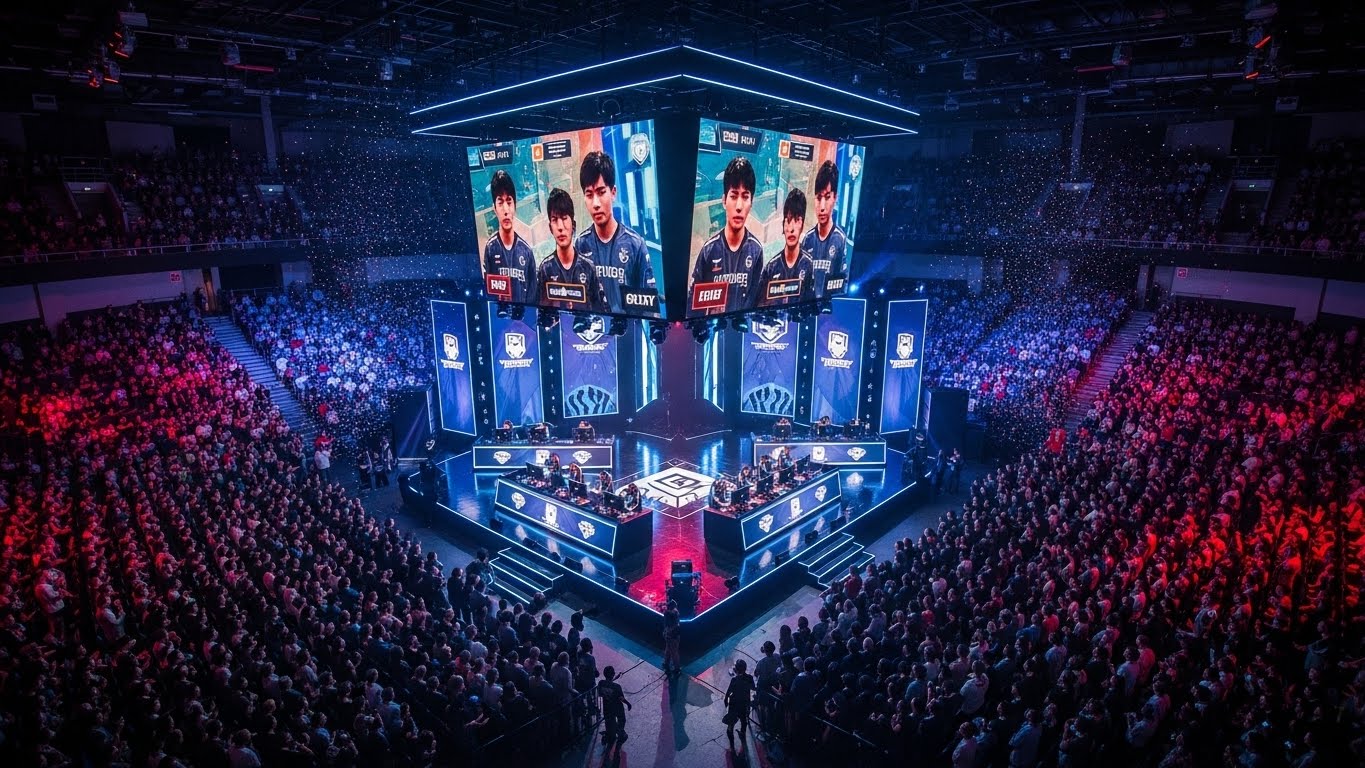Introduction: Esports as a Global Phenomenon
In the last decade, esports has transformed from a niche hobby into a global phenomenon. What was once considered casual gaming has evolved into a highly competitive, professional, and lucrative industry. Millions of players compete online across various genres, while spectators watch tournaments in real time, filling virtual arenas with excitement. Esports has not only redefined what it means to be an athlete but has also created new career paths, community connections, and forms of entertainment.
Esports competitions now rival traditional sports in terms of viewership, organization, and sponsorship. With major tournaments broadcast worldwide, professional gamers have become celebrities in their own right. This rise highlights the growing legitimacy and cultural significance of esports, which continues to shape the future of digital entertainment.
The Evolution of Esports
Esports traces its origins back to the early days of video games. Simple arcade competitions and small-scale local tournaments gradually gave way to online multiplayer games that connected players across the world. Games like StarCraft, Counter-Strike, and League of Legends became milestones in competitive gaming history, offering both entertainment and strategic depth.
The development of streaming platforms and digital broadcasting revolutionized esports. Viewers could now watch competitions live, interact with commentators, and follow their favorite players from anywhere. This accessibility fueled rapid growth, attracting millions of viewers and transforming esports into a mainstream spectacle. Professional leagues, sponsorship deals, and international tournaments soon followed, solidifying esports as a legitimate industry.
Physical and Mental Demands in Esports
While esports may appear less physically demanding than traditional sports, professional gaming requires remarkable physical and mental endurance. Precision, reflexes, and sustained focus are critical, often involving hours of practice every day. Gamers must maintain excellent hand-eye coordination, quick reaction times, and exceptional multitasking abilities.
Mental resilience is equally important. Esports players face intense pressure during competitions, where split-second decisions can determine the outcome. They must manage stress, stay calm under pressure, and adapt quickly to changing in-game scenarios. Like traditional athletes, esports professionals rely on discipline, practice routines, and strategic planning to excel. Physical fitness and healthy lifestyle habits have also become more prevalent among top gamers to sustain performance and prevent fatigue.
Popular Esports Genres and Games
Esports encompasses a wide variety of game genres, each with unique competitive dynamics. Multiplayer Online Battle Arenas (MOBAs) such as League of Legends and Dota 2 require teamwork, strategy, and individual skill. First-Person Shooters (FPS) like Counter-Strike: Global Offensive and Valorant demand precision, reaction speed, and tactical coordination. Battle Royale games, including Fortnite and Apex Legends, combine survival strategy with real-time decision-making.
Real-Time Strategy (RTS) games challenge players to manage resources, control units, and outmaneuver opponents strategically. Sports simulation games like FIFA and NBA 2K have also emerged as popular esports titles, bridging the gap between traditional sports fans and digital gaming communities. Each genre attracts a unique audience, showcasing the versatility and inclusiveness of esports.
Esports Communities and Social Interaction
One of the most compelling aspects of esports is the strong sense of community it fosters. Online forums, streaming platforms, and social media create spaces for players and fans to interact, share strategies, and celebrate achievements. Esports communities provide support networks where individuals with similar interests can connect and collaborate.
Competitive gaming also encourages teamwork and communication. In team-based games, players must coordinate strategies, delegate roles, and maintain synergy to succeed. These interactions cultivate collaboration skills, leadership, and mutual respect. Beyond gameplay, esports communities engage in discussions about game updates, esports news, and cultural trends, creating a rich social ecosystem around digital competition.
Career Opportunities in Esports
Esports has created an entirely new career landscape. Professional gamers can earn substantial income through tournament winnings, sponsorships, and streaming revenue. Coaches, analysts, and team managers support players, while event organizers, broadcasters, and content creators contribute to the broader industry.
Streaming platforms have opened opportunities for individual creators to build personal brands, interact with audiences, and monetize their content. Game developers also benefit from esports as it promotes engagement, extends game lifespan, and fosters competitive innovation. The professionalization of esports demonstrates that gaming is no longer just entertainment; it is a viable career path requiring dedication, skill, and strategy.
Economic Impact of Esports
The esports industry has a significant global economic footprint. Sponsorship deals, advertising, merchandise sales, and ticket revenue contribute to a multi-billion-dollar industry. Large-scale tournaments attract international attention, stimulate tourism, and create employment opportunities across event management, marketing, and media sectors.
Esports also drives technological innovation. Developers invest in servers, graphics, and streaming technology to enhance competitive gaming experiences. The industry’s growth demonstrates the economic potential of digital sports and highlights the increasing influence of technology in shaping modern entertainment markets.
Esports and Education
Esports has also found its way into educational institutions. Many colleges and universities now offer esports programs, scholarships, and organized teams. These programs develop critical skills such as teamwork, strategy, problem-solving, and digital literacy. Academic institutions recognize that esports combines cognitive skill development with creativity and collaboration, preparing students for careers in technology, management, media, and gaming industries.
High schools and community programs are similarly embracing esports, offering opportunities for students to compete in organized leagues. Educational esports programs promote inclusivity, allowing students who may not participate in traditional sports to develop skills, confidence, and social connections.
Challenges and Controversies in Esports
Despite its rapid growth, esports faces several challenges. Professional gamers often experience high levels of stress and burnout due to rigorous training schedules and competitive pressure. Maintaining physical health, managing mental fatigue, and balancing personal life are ongoing concerns.
Additionally, issues such as cheating, toxic behavior, and unfair practices have sparked debates within the community. Regulatory bodies and tournament organizers work to implement fair play policies, enforce rules, and promote ethical standards. The evolving nature of esports requires continuous adaptation to maintain legitimacy, fairness, and long-term sustainability.
The Future of Esports
The future of esports looks promising and dynamic. Emerging technologies such as virtual reality, augmented reality, and artificial intelligence are expected to transform gameplay, training methods, and audience engagement. Virtual stadiums, interactive viewing experiences, and immersive competitions may redefine the way fans experience esports.
Inclusivity will also continue to expand. Women’s esports, adaptive gaming, and grassroots programs are creating opportunities for broader participation. Esports is no longer limited to traditional gaming audiences; it appeals to diverse demographics and continues to inspire innovation in entertainment, technology, and culture.
Conclusion: Esports as a Defining Force in Digital Culture
Esports is more than a form of entertainment; it is a cultural, economic, and social force. It challenges traditional perceptions of sports, redefining what it means to compete and excel in the digital age. Through skill, strategy, and dedication, professional gamers demonstrate that esports requires discipline, teamwork, and resilience, much like traditional athletic pursuits.
The industry’s growth, global reach, and influence reflect the power of digital competition to unite communities, create opportunities, and inspire individuals. As esports continues to evolve, it will play an increasingly important role in shaping the future of sports, technology, and culture, proving that the spirit of competition thrives in every form, virtual or physical.



